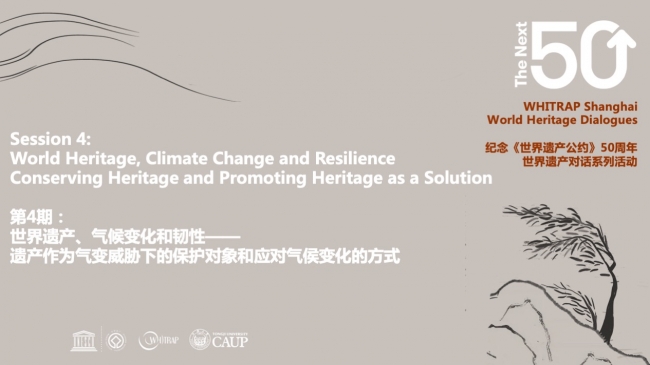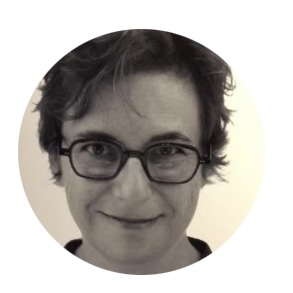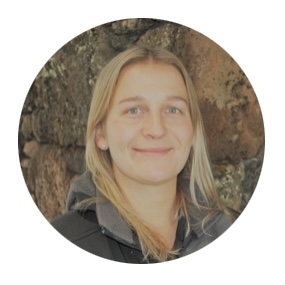| Preview | 4th WHITRAP World Heritage Dialogue: World Heritage, Climate Change and Resilience |
| PublishDate:2022-09-06 Hits:10029 |
World Heritage Dialogues for the 50th Anniversary of the World Heritage Convention See the Calendar of the World Heritage Dialogues series: http://www.whitr-ap.org/index.php?classid=1461&newsid=3310&t=show
Session 4 World Heritage, Climate Change and Resilience
Conserving Heritage and Promoting Heritage as a Solution
Wednesday 14 September 2022
Online 14:00-16:30 Beijing time (UTC + 8)
English Channel on Bilibili Platform
Live-streaming link: http://live.bilibili.com/4402597
English Channel on Wechat Platform
The online Dialogues will be in English with simultaneous interpretation in Chinese. Video recordings of the Dialogue and a brief synthesis will be published online on the WHIRTAP and Herit-AP website.
From 11 June to 16 November 2022, WHITRAP Shanghai will organize a series of 6 monthly online World Heritage Dialogues including a WHITRAP Herit-AP Chat, in July, hosted by the College of Architecture and Urban Planning (CAUP) Tongji University (Shanghai, China) to celebrate the 50th Anniversary of the Convention Concerning the Protection of the World Cultural and Natural Heritage, which was adopted on 16th November 1972 by the General Conference of UNESCO. On 14 September 2022 from 14:00-16:30 Beijing time (UTC+8), the 4th WHITRAP Shanghai World Heritage Dialogue, will discuss “World Heritage, Climate Change and Resilience -- Conserving Heritage and Promoting Heritage as a Solution” through examples and case studies provided by experts from the Asia-Pacific region and around the world. Participants are invited to share perspectives based on their professional experience in their respective fields, exploring what tools can be used for safeguarding heritage threatened by Climate Change and discuss how heritage can be a solution to confronting Climate Change in conservation practices as well as a means to mitigate Climate Change beyond the conservation field itself. Climate Change is now a "hot topic" in international discussions and national strategy papers, and is acknowledged as one of the greatest threats to humanity and rapidly becoming one of the most important risks to World Heritage. Climate Change refers to long-term changes in temperature and weather patterns, which can be caused by natural causes such as changes in the solar cycle, but human activities have been the main cause of change since the 19th century, particularly the burning of fossil fuels such as coal, oil and gas. The last decade has been the warmest on record for the planet, and as greenhouse gas emissions continue to rise, humanity faces the consequences of Climate Change: extreme droughts, water shortages, major fires, rising sea levels, floods, melting polar ice, catastrophic storms, and reduced biodiversity. The Goal 11 of the UN 2030 Sustainable Development Goals, is: “Make cities and human settlements inclusive, safe, resilient and sustainable” and target 11.4 puts forward “Further efforts to protect and defend the world cultural and natural heritage”. However, saving heritage goes well beyond Goal 11, as heritage can be a lever contributing to the reaching of the other Sustainable Development Goals[ https://whc.unesco.org/en/sustainabledevelopment/]. This Dialogue wants to contribute to imagining a way forward for the next 50 years.
Not only sites are impacted, but populations, living in or outside the sites, are affected as well. As their livelihood can be threatened, their social structure and cultural diversity are disrupted, leading to increased poverty, migration, conflicts and starvation in the worse cases. Conserving heritage values implies to manage risk as well as to address post climatic events interventions. Knowledge, research and monitoring are essential; developing adequate tools and assessing needs must be planned ahead. It implies looking at World Heritage properties at a larger scale by considering territorial planning and coordinated governance at all levels and in every sector and for all types of heritage categories. The question for us, in this time of crisis, is to further define the tools and means to conserve and safeguard heritage not only at short term but at long term as well. Whilst doing our best to protect heritage, the unprecedented acceleration of Climate Change brings us to face situations where threats are too strong and mitigation impossible, then must we let go of heritage? If the destruction of the tangible relics of the past can’t be avoided, can we at least save its legacy? How do we achieve this? However, even though the effects of climate change physically impact the tangible attributes of heritage as well as intangible values and people’s environment, heritage itself can be a solution to mitigate Climate Change. What can we learn from heritage, the natural, cultural and mixed ones? How can we flip the coin when there are conflicting interests related to development? We can learn from traditional systems or by conserving natural ecosystems, which de facto protect the human environment. Conserving wetlands or forests has a positive impact, way beyond the boundaries of a protected area. Traditional water management systems, ingenious forms of agriculture, historic urban layouts or building construction techniques adapted to the climate and their settings can be sources of inspiration to mitigate the negative impacts of humans. Tangible and intangible heritage also provide examples of sustainable historical practices. In water management, the Persian Qanat system in Iran or India or the Council of Wise Men of the irrigators’ tribunal in Spain are relevant examples. 50 years ago, when the Convention Concerning the Protection of the World Cultural and Natural Heritage was adopted, Climate Change was not at the forefront of the discussion on the conservation of the heritage of the world, though nature and the environment were given increased attention in the international debate. Whilst the Convention text doesn’t explicitly refer to Climate Change, however it does refer to planning and governance to defining the role and function of heritage. This is still relevant today: virtuous governance is key to managing the impacts of Climate Change and to preventing risk by adopting long-term policies. Given all this, reflecting on the role and function of heritage as a solution, considering it as a role model, and enhancing its educational value can contribute to reaching two objectives, one is conserving our heritage, the other is changing approaches to development, heading towards a more resilient and sustainable future for all. The World Heritage Convention does seem more than ever relevant for us today and for the next 50 years.
Agenda Wednesday 14 September 2022 Online 14:00-16:30 Beijing time (06:00-08:30 UTC) 14:00-14:15 Introduction Marie-Noël TOURNOUX, Project Director, WHITRAP Shanghai 14:15-14:30 World Heritage, Climate Change and Resilience -- Conserving Heritage and Promoting Heritage as a Solution Dr. MU Xingyu, Project Director, WHITRAP Shanghai 14:30-15:20 Pecha Kucha - Patricia O’DONNELL, President ICOMOS Scientific Committee on Cultural Landscape - Prof. LIU Gengnian, College of Urban and Environmental Sciences, Peking University, China - Erin ROSE, Executive Office at Gunditj Mirring Traditional Owners Aboriginal Corporation - Mr. LI Jinsheng, Senior expert in urban planning in China - Associate Prof. LI Ang, College of Political Science and Law, Hainan Normal University - Diane MENZIES, ICOMOS Scientific Committee on Cultural Landscape - Associate Prof. SONG Feng, Deputy Director of WHITRAP Beijing
15:20-16:20 Round Table Discussion Moderator: Dr. MU Xingyu, Project Director, WHITRAP Shanghai16:20-16:30 Wrap up Marie-Noël TOURNOUX, Project Director, WHITRAP Shanghai
Participants
Marie-Noël TOURNOUX Project Director, WHITRAP Shanghai
Dr. MU Xingyu Project Director, WHITRAP Shanghai
Patricia O’DONNELL
Conservation Landscape Architect and Planner
President ICOMOS Scientific Committee on Cultural Landscape
 Prof. LIU Gengnian
College of Urban and Environmental Sciences, Peking University
Erin ROSE
Executive Office at Gunditj Mirring Traditional Owners Aboriginal Corporation
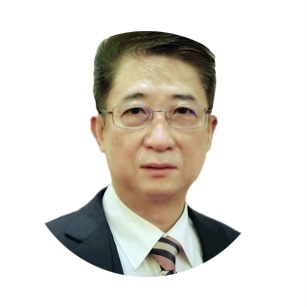 Mr. LI Jinsheng
Senior expert in urban planning in China
Associate Prof. LI Ang
College of Political Science and Law, Hainan Normal University
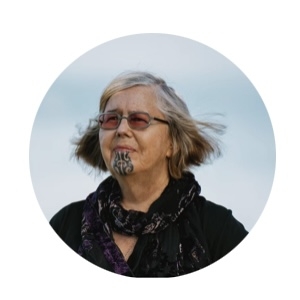 Diane MENZIES,
ONZM, ICOMOS Scientific Committee on Cultural Landscape
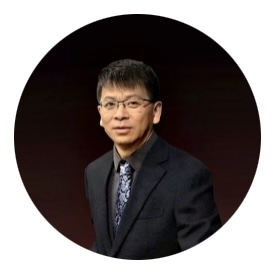 Associate Prof. SONG Feng
Deputy Director of WHITRAP Beijing
For more information, you may refer to the Booklet PDF.
Dialogues Session 1 - World Heritage and Quality of Life Announcement: http://www.whitr-ap.org/index.php?classid=1461&newsid=3312&t=show Summary: http://www.whitr-ap.org/?classid=1461&newsid=3315&t=show Video Playback: http://heritap.whitr-ap.org/index.php?classid=12497&id=34&t=show Dialogues Session 2 - Rural Heritage Announcement: http://www.whitr-ap.org/index.php?mod=news&classid=1461&newsid=3329&t=show Summary: http://www.whitr-ap.org/index.php?mod=news&classid=1461&newsid=3338&t=show
Dialogues Session 3 - World Heritage and the Digital Revolution Announcement: http://www.whitr-ap.org/index.php?mod=news&classid=1461&newsid=3333&t=show Summary: http://www.whitr-ap.org/index.php?mod=news&classid=1461&newsid=3338&t=show |
- Call for Application | 2024 Global Awards for World Heritage Education Innovative Cases(AWHEIC) Promoting what people do and how they do it
- Documentary: 2023 World Heritage Creative X Innovators Conference and the AWHEIC Third Anniversary Celebration
- Publication | WHITRAP Newsletter No. 61
- Mt. Huangshan first show in Climate Action for World Heritage
- Call for Good Practices: 2024 Environment and Resilience
- FAQs | 2024 Call for Good Practices
Copyright © 2009-2012 World Heritage Institute of Training and Research-Asia and Pacific (shanghai)


